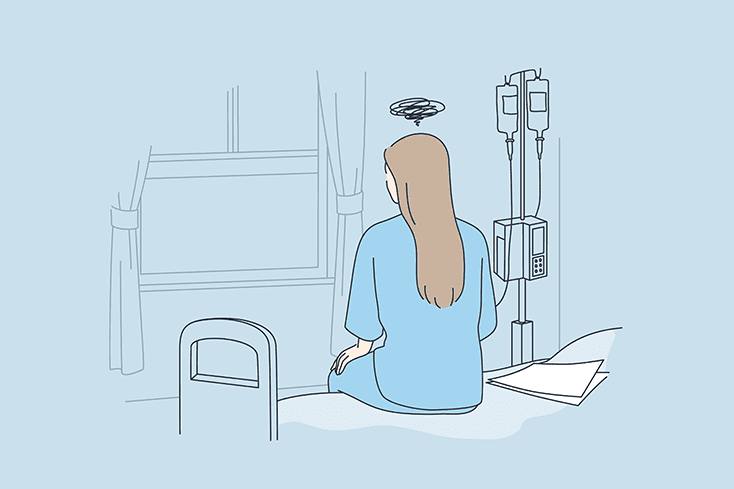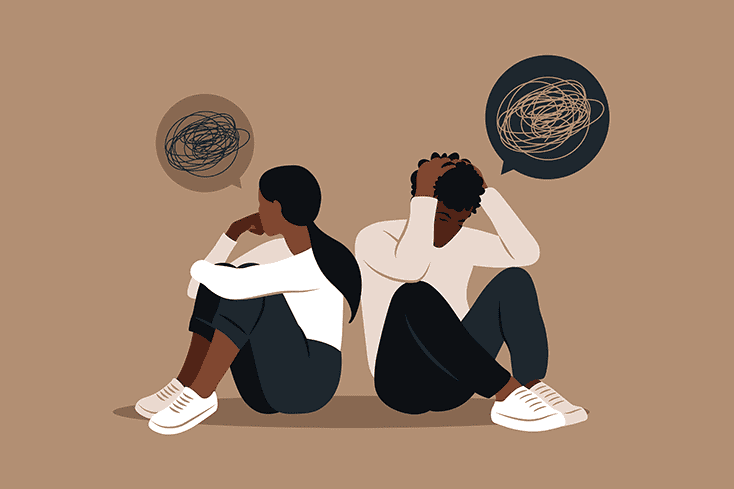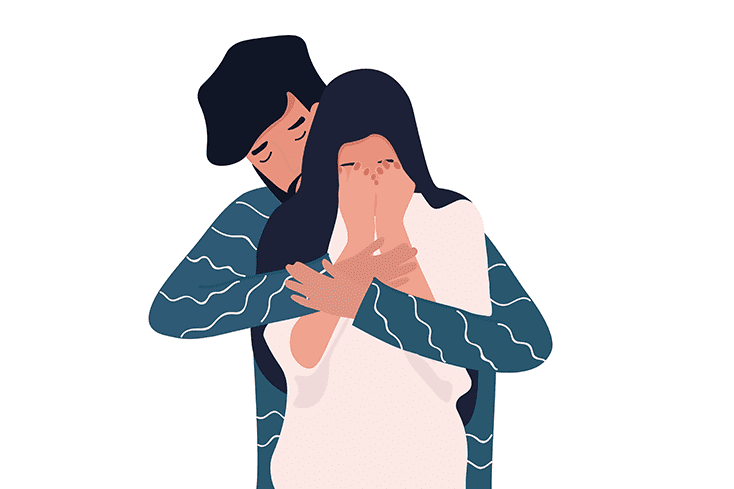營養精神醫學:你的大腦與食物 | Nutritional psychiatry: Your brain on food
MHACC 雙語部落格 Bilingual Blog
Scroll down for the English Version ⬇️
撰寫者:Eva Selhub 醫學博士,特約編輯
原始來源:https://health.harvard.edu/blog/nutritional-psychiatry-your-brain-on-food-201511168626
2022年9月18日
請思考一下:你的大腦始終處於“開啟”狀態。它負責你的思考和運動、呼吸和心跳、感官——即使在睡覺時也在辛勤工作,全天候不停歇。這意味著你的大腦需要不間斷的“燃料”供應。而這種“燃料”來自於你所攝取的食物——燃料的質量決定了大腦的結構和功能,甚至影響到你的情緒。
就像一輛昂貴的汽車一樣,大腦在獲得“高級燃料”時才能運作最佳。攝取富含維生素、礦物質和抗氧化劑的優質食物能滋養大腦,並保護它免受氧化壓力的影響。氧化壓力是當身體使用氧氣時產生的“廢物”(自由基),這些廢物可能會損害細胞。
然而,不幸的是,和昂貴的汽車一樣,如果攝入了“低級燃料”(例如加工或精製的食物),大腦幾乎無法將這些有害物質清除出去。高糖飲食對大腦尤為有害,不僅會加劇胰島素的調節問題,還會促進炎症和氧化壓力。多項研究發現,高糖飲食與大腦功能受損之間存在相關性,甚至會加劇情緒障礙(如抑鬱症)的症狀。
這很有道理。如果你的大腦缺乏優質營養,或者自由基或有害的炎性細胞在大腦的封閉空間內循環,進一步導致腦組織受損,那麼後果是可以預見的。有趣的是,過去多年,醫學領域並未完全承認食物與情緒之間的關聯。
如今,幸運的是,新興的“營養精神醫學”領域正在揭示食物、情緒和行為之間的種種影響和相關性,甚至包括腸道內的細菌種類。
食物如何影響心理健康
血清素是一種神經遞質,能幫助調節睡眠和食慾、緩解情緒並抑制疼痛。約有95%的血清素是在胃腸道中生成的,而胃腸道內有上億個神經細胞(神經元)。因此,胃腸道的運作不僅幫助消化食物,還對情緒起到指導作用。更重要的是,這些神經元的功能以及血清素等神經遞質的生成,受到腸道內數十億“有益菌”的高度影響。
這些有益菌對你的健康至關重要。它們保護腸道內壁,確保形成對毒素和“有害菌”的強大屏障;它們能減少炎症,提升你從食物中吸收營養的能力;它們還能激活直接連接腸道與大腦的神經通路。
研究比較了“傳統飲食”(如地中海飲食和傳統日本飲食)與典型“西方飲食”,發現遵循傳統飲食的人患抑鬱症的風險降低了25%至35%。科學家認為這一差異的原因在於,傳統飲食通常富含蔬菜、水果、未加工穀物、魚類和海鮮,僅含適量的瘦肉和乳製品,而且不含西方飲食中常見的加工食品和精製糖。此外,許多未加工食品經過發酵,因此能作為天然益生菌。
這可能聽起來難以置信,但有益菌不僅影響腸道對食物的消化和吸收,它們還影響全身的炎症水平,以及情緒和能量水平,這一觀點正在得到越來越多研究者的支持。
營養精神醫學:對你意味著什麼?
開始關注不同食物對你感覺的影響——不僅是在當下,還包括隔天的感受。嘗試實行兩到三週的“清潔飲食”,這意味著完全戒除加工食品和糖。看看你的感覺如何。然後逐漸將一些食物重新納入飲食中,一次一種,觀察自己的感受變化。
一些人在“清潔飲食”期間,對自己身體和情緒的改善感到難以置信,而當他們重新攝取那些已知會加劇炎症的食物時,感受到明顯的不適。
摘自哈佛健康博客文章,作者:Eva Selhub, MD
圖片來源:Pablo_K/Getty Images
Written by: Eva Selhub MD, Contributing Editor
Original Source here: https://health.harvard.edu/blog/nutritional-psychiatry-your-brain-on-food-201511168626
September 18, 2022
Think about it. Your brain is always "on." It takes care of your thoughts and movements, your breathing and heartbeat, your senses — it works hard 24/7, even while you're asleep. This means your brain requires a constant supply of fuel. That "fuel" comes from the foods you eat — and what's in that fuel makes all the difference. Put simply, what you eat directly affects the structure and function of your brain and, ultimately, your mood.
Like an expensive car, your brain functions best when it gets only premium fuel. Eating high-quality foods that contain lots of vitamins, minerals, and antioxidants nourishes the brain and protects it from oxidative stress — the "waste" (free radicals) produced when the body uses oxygen, which can damage cells.
Unfortunately, just like an expensive car, your brain can be damaged if you ingest anything other than premium fuel. If substances from "low-premium" fuel (such as what you get from processed or refined foods) get to the brain, it has little ability to get rid of them. Diets high in refined sugars, for example, are harmful to the brain. In addition to worsening your body's regulation of insulin, they also promote inflammation and oxidative stress. Multiple studies have found a correlation between a diet high in refined sugars and impaired brain function — and even a worsening of symptoms of mood disorders, such as depression.
It makes sense. If your brain is deprived of good-quality nutrition, or if free radicals or damaging inflammatory cells are circulating within the brain's enclosed space, further contributing to brain tissue injury, consequences are to be expected. What's interesting is that for many years, the medical field did not fully acknowledge the connection between mood and food.
Today, fortunately, the burgeoning field of nutritional psychiatry is finding there are many consequences and correlations between not only what you eat, how you feel, and how you ultimately behave, but also the kinds of bacteria that live in your gut.
How the foods you eat affect your mental health
Serotonin is a neurotransmitter that helps regulate sleep and appetite, mediate moods, and inhibit pain. Since about 95% of your serotonin is produced in your gastrointestinal tract, and your gastrointestinal tract is lined with a hundred million nerve cells, or neurons, it makes sense that the inner workings of your digestive system don't just help you digest food, but also guide your emotions. What's more, the function of these neurons — and the production of neurotransmitters like serotonin — is highly influenced by the billions of "good" bacteria that make up your intestinal microbiome. These bacteria play an essential role in your health. They protect the lining of your intestines and ensure they provide a strong barrier against toxins and "bad" bacteria; they limit inflammation; they improve how well you absorb nutrients from your food; and they activate neural pathways that travel directly between the gut and the brain.
Studies have compared "traditional" diets, like the Mediterranean diet and the traditional Japanese diet, to a typical "Western" diet and have shown that the risk of depression is 25% to 35% lower in those who eat a traditional diet. Scientists account for this difference because these traditional diets tend to be high in vegetables, fruits, unprocessed grains, and fish and seafood, and to contain only modest amounts of lean meats and dairy. They are also void of processed and refined foods and sugars, which are staples of the "Western" dietary pattern. In addition, many of these unprocessed foods are fermented, and therefore act as natural probiotics.
This may sound implausible to you, but the notion that good bacteria not only influence what your gut digests and absorbs, but that they also affect the degree of inflammation throughout your body, as well as your mood and energy level, is gaining traction among researchers.
Nutritional psychiatry: What does it mean for you?
Start paying attention to how eating different foods makes you feel — not just in the moment, but the next day. Try eating a "clean" diet for two to three weeks — that means cutting out all processed foods and sugar. See how you feel. Then slowly introduce foods back into your diet, one by one, and see how you feel.
When some people "go clean," they cannot believe how much better they feel both physically and emotionally, and how much worse they then feel when they reintroduce the foods that are known to enhance inflammation.
Adapted from a Harvard Health Blog post by Eva Selhub, MD
Image: Pablo_K/Getty Images
Sign up for our Newsletter
訂閱每月簡訊獲得最新資訊
Contact Us












